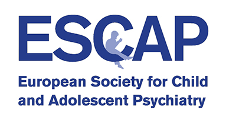The European Society for Child and Adolescent Psychiatry (ESCAP) Publishes Its Endorsed Autism Practice Guidance

Across Europe, there is increased awareness of the frequency and importance of autism spectrum disorder (ASD), which is now recognised not only as a childhood disorder but as a heterogeneous, neurodevelopmental condition that persists throughout life. Services for individuals with autism and their families vary widely, but in most European countries, provision is limited. In 2018, the European Society of Child and Adolescent Psychiatry (ESCAP) identified the need for a Practice Guidance document that would help to improve knowledge and practice, especially for individuals in underserviced areas.
The present document, prepared by the ASD Working Party and endorsed by the ESCAP Board on October 3, 2019, summarises current information on autism and focuses on ways of detecting, diagnosing, and treating this condition. The document “ESCAP practice guidance for autism: a summary of evidence‑based recommendations for diagnosis and treatment” has been published in Open Access and is the outcome of the ESCAP ASD Working Party led by Joaquin Fuentes (San Sebastián, Spain), with Amaia Hervás (Barcelona, Spain), and Patricia Howlin (London, UK) as co-authors.
This Practice Guidance has been, for the first time in history, formally endorsed by the Board of ESCAP, presided by Dimitris Anagnostopoulos, from Greece. This professional organization includes the National Child & Adolescent Psychiatry Societies of: Austria, Belgium (Flemish), Belgium (French), Bosnia and Herzegovina, Bulgaria, Croatia, Cyprus, Czech Republic, Denmark, Estonia, Finland, France, Germany, Greece, Hungary, Iceland, Ireland, Israel, Italy, Lithuania, Netherlands, Norway, Poland, Portugal, Romania, Russia, Servia, Slovenia, Spain, Sweden, Switzerland, Turkey, United Kingdom and Ukraine. Its content has already been disseminated in a number of scientific networks, social media and ASD organizations across the world.
The document is accessible in English, Spanish and French, at the following links:
Original (in English):
https://link.springer.com/content/pdf/10.1007/s00787-020-01587-4.pdf
(It contains a link for electronic supplementary materials)
Spanish Translation:
http://www.autismo.org.es/sites/default/files/guia_practica_de_escap_para_el_autismo.pdf
(Materiales suplementarios incluidos)
French Translation:
http://www.autisme-france.fr/offres/doc_inline_src/577/ESCAP-Guide_pratique_pour_l_autisme.VF-2020.pdf
(Matériel complémentaire inclus)
The primary goal of this document is to disseminate information that can be adopted for use in regular clinical practice across Europe and to present clinicians and educators with evidence-based advice on core and minimum standards for good practice in the assessment and treatment of autistic people of all ages. The aim is not to make specific recommendations for the use of particular interventions or assessment methodologies, but rather to provide general guidance, based on a combination of information from randomised and non-randomised trials, expert opinion, and other existing international guidelines.
The ESCAP ASD Working Party is very hopeful that it will be a significant tool for clinicians and for families in so many service-deprived areas across Europe and the world, and expects to see contextualized summary versions in many different languages.
ASD WORKING PARTY




